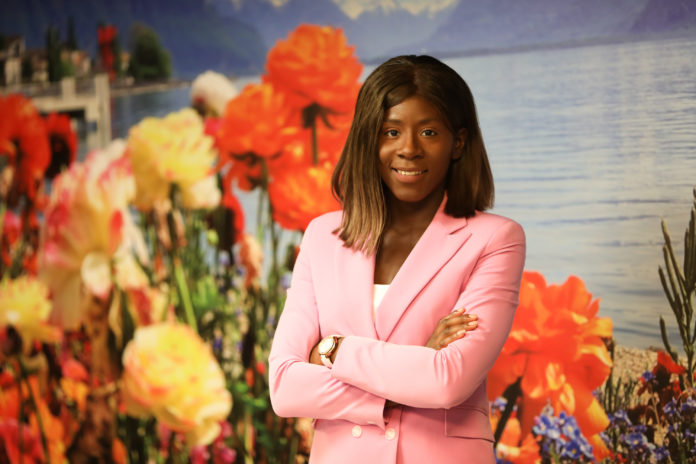This Sunday 8 March, it’s Women’s Day. Throughout the whole of this week we will be spotlighting the stories of inspirational female founders and investors, to both open up a space to discuss shared challenges and possible shared solutions, as well as give more visibility to female startup players to smash the “you can’t be what you can’t see” hypothesis.
Opening the week is Wendy Oke, founder of TeachKloud in Ireland. With a PhD in early childhood education, Wendy realised the need to help childhood educators reduce their paper work and spend more time teaching. From here she has closed funding, is scaling up into the UK and the US, and is also a visible Ambassador for National Women’s Enterprise Day in Ireland.
We got the chance to ask Wendy about her vision for the edtech industry, motivations to start an impact-driven venture, biggest challenges and solutions, and advice for other female founders out there.
What were you doing before you created TeachKloud?
I was studying for a degree in early childhood education. TeachKloud originated from my masters/doctoral research – I was lecturing during this time and working with children with additional needs.
As a mission-driven startup, TeachKloud aims to help teachers spend more time teaching. How did you get this idea?
My grandfather went from a makeshift hut to a supreme court judge so the power of education has always been ingrained in our family’s history. During a degree and a PhD in early childhood education, I spoke to many early childhood and preschool educators, advocates and parents. It became apparent that early childhood educators loved working with children, they were drawn to early childhood education because they wanted to make a difference in children’s lives, in the same way a quality early education had changed my grand-fathers life.
However, my doctoral research indicated that these educators were spending 2-4 hours on paperwork, overwhelmed by varying regulations and educational standards, while many of them were planning on leaving the profession in the next 5 years because of the aforementioned challenges. This made me sad because in general, children who attend quality early educational services are less likely to be incarcerated, more likely to own their own homes and have higher educational attainment than their peers who did not have access to quality services. TeachKloud, a cloud-based management and compliance platform that helps early childhood and preschool educators reduce their paperwork, comply with regulations and implement best practice guidelines, originated from my research.
How do you see the edtech industry changing in the next 5-10 years?
The edtech industry is posed for immense growth in the next 5-10 years, key players in the edtech space will emerge which will draw an unprecedented amount of funding. I believe that the companies who will succeed are the ones who have a strong mission and focus on improving the lives of children, their families and/or educators. Many sectors have been revamped by technology, education, especially early childhood education, have remained the same, it’s an exciting time for the edtech industry!
As a female entrepreneur, what has been your biggest challenge up until now?
I have faced many challenges but the one that springs to mind is being taken seriously, especially because I was trying to fundraise and show the value in investing in the early childhood industry. I would be pitching to a room full of men and at times, would see their eyes glaze over when I mentioned ‘babies’ or ‘preschool.’ I was once told that TeachKloud was a ‘nice idea’ and that I was ‘impressive’ but should focus on a different business, one that would not involve babies or teachers. I think comments like this are certainly unhelpful but definitely motivated me. I did more research than most, more customer interviews, went out and got customers, and really proved that TeachKloud was a viable opportunity.
What more can be done to develop female entrepreneurship in Europe, and by who? Do you see a connection with early education?
I believe that having more women as investors, having more women sitting on boards, making decisions on who gets funding would help. Women will fund women. I believe in funding the best business regardless of where the founder is from or their gender. However, women constitute 52% of the total European population, but only 30% of startup entrepreneurs are women. We need to do better.
I also believe that if we really want more women in senior positions, whether they are entrepreneurs or intrapreneurs, then we need to invest in early childhood education. As I mentioned before, early education goes way beyond labour activation, but we also cannot avoid the big elephant in the room; research by the European parliament suggests that employed women spend twice as many hours on care and housework compared to employed men. While one of the main barriers for families in accessing quality early childhood education is cost, usually the woman is the one who stays at home or leaves her job prematurely to ensure the well-being of her children/family.
Thinking back, what would you tell yourself 10 years ago?
Stop thinking and just do it!
What is your advice for female entrepreneurs Europe-wide?
Don’t sell yourself short! Like me, a lot of women I meet are embarrassed to shout from the rooftops about their business, achievements and goals. Sometimes, we even tend to suppress our accomplishments in fear of being seen as arrogant. I think we, as women, need to be confident and proud of our triumphs…. Mind you, I’m still working on this myself.




